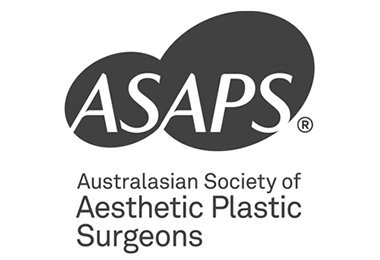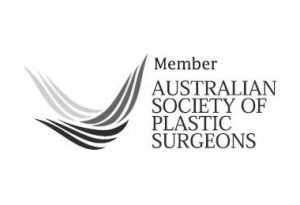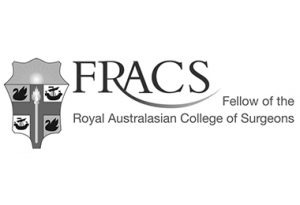SKIN CANCER TREATMENT
Our Gold Coast Melanoma Clinic Treats All Types of Skin Cancers
The skin is the largest organ in the body and performs a range of functions to keep us healthy. Your skin:
-
Protects the body from impact and injury
-
Regulates your body temperature
-
Prevents loss of moisture
-
Reduces the effects of harmful UV exposure
-
Protects against toxins and pollution
Skin cancer is the uncontrollable growth of abnormal cells within the skin that can lead to harmful moles or tumours.
Shockingly, skin cancer accounts for 80% of all newly diagnosed cancers in Australia each year, while melanoma is the fourth most common cancer in Australia.
Who is at risk of developing skin cancer?
You may be at increased risk of developing skin cancer during your lifetime if you:
-
Are fair or light-skinned
-
Turn red and burn easily when exposed to the sun
-
Have many moles and freckles on your skin
-
Use or have used solariums
-
Have suffered from sunburn in the past (particularly during childhood or adolescence)
-
Have a history of skin cancer in your family
The good news is that early detection is hugely impactful when it comes to curing even aggressive cancers.
Types of skin cancer
There are three main types of skin cancer, two of which sit under the broader category of non-melanoma skin cancer, while the other is known as melanoma skin cancer.
Non-melanoma skin cancer
Today, non-melanoma skin cancers are also referred to as keratinocyte cancers. They are the most common types of skin cancers however data is not routinely collected in each Australian state or territory. As such, it is difficult to determine how many cases are diagnosed each year.
Within this category sit two of the main types, BCC and SCC skin cancers, as well as a third, rarer form: MCC.
Basal cell carcinoma (BCC)
Basal cell carcinoma, also known as BCC, is one of the most common types of skin cancer. BCC skin cancers develop in the lower layers of the dermis.
It grows slowly and fortunately, is the least dangerous form of skin cancer. BCC does not spread, but rather causes damage on location.
Squamous cell carcinoma (SCC)
Squamous cell carcinoma, or SCC, forms in the upper or outer layers (epidermis) of the skin. SCC usually appears as red, scaly, or crusty spots that are prone to bleeding. SCC cancers can spread to lymph glands.
Merkel cell carcinoma (MCC)
Merkel cell carcinoma is an extremely rare yet aggressive non-melanoma skin cancer. It can spread to the lymphs and other organs, and can be fatal.
Melanoma skin cancer
Melanoma skin cancers are regarded as the most aggressive type of skin cancer. It accounts for just 1% of all skin cancers however is responsible for the majority of skin cancer-related deaths.
It can spread quickly and when left untreated, can be fatal.
Fortunately, even this aggressive cancer can be successfully treated with early detection.
This only enforces the importance of regular skin checks with a trusted professional to assess and monitor the condition of moles, freckles, and spots.
What parts of the body are most susceptible to skin cancer?
As you might presume, any area which experiences a higher degree of sun exposure is more prone to the risk of skin cancer. This includes places like the face, head, ears, neck, chest, arms, and legs.
For those who live in warmer climates and wear less clothing, it can also develop on the back, torso, and legs.
Having said that, skin cancer can in fact appear anywhere on the body, including places you mightn’t expect, such as behind the ears, on the scalp, on the bottom of the feet, under your nails, or the genitals.
Simple tips to protect your skin from the harmful effects of UV exposure
-
Wear sunscreen every day (not just when you’re heading to the beach)
-
Protect your eyes with high-quality sunglasses
-
Avoid the sun where possible during the hours where UV is strongest, typically 10am to 4pm
-
Remember that UV rays can be at their strongest even on cloudy or overcast days
-
Choose a broad-spectrum sunscreen that protects against both UVA and UVB rays
Melanoma, SCC and BCC skin cancer removal
Dr Hertess Plastic Surgery specialises in a range of cosmetic surgery procedures as well as skin cancer treatments.
Our range of techniques are tailored to meet your unique needs and designed to remove cancerous cells with as little damage as possible to surrounding healthy skin. However, risks are associated with any procedure, so you should discuss the pros and cons of your treatment options with us prior to proceeding.
Learn more about our treatments for skin cancer removal on the Gold Coast.
Skin cancer surgery before and after photos
See some of our patients before and after their skin cancer removal surgery. Click through to view the full gallery and reach out to our skin cancer specialists if you have any questions or concerns.
Make an enquiry
DR HERTESS MEMBERSHIPS





CONTACT DETAILS
Contact Number: (07) 5601 0492Email: enquiry@drhertess.com.au
Address:
Ground Floor, 220 Ashmore Road, Benowa QLD 4217
